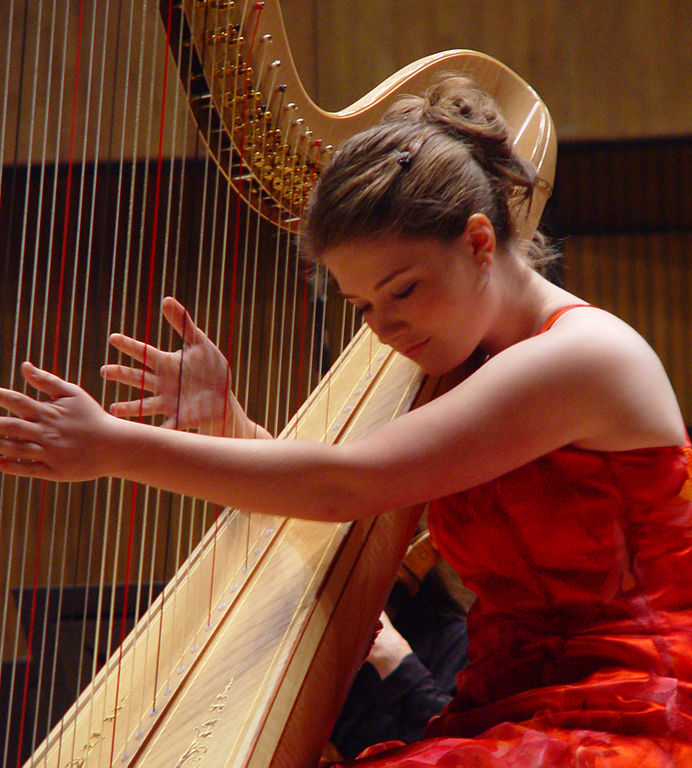By Martin Castro (The Cascade) – Email
There are many things we have musicians to thank for. I’d like to thank Emilie & Ogden for blessing me with the opportunity to go up to people and in all seriousness say, “Hey, check out this kick-ass harp record.”
“Blame,” the first track on 10 000, is a perfect introduction to the rest of the album: a sweet, summery harp is plucked and strummed while Emilie Kahn sings a verse full of regret and doubt, which gradually becomes more sure of itself in both delivery and content. The way harp, piano, violin, and percussion are layered throughout the track to create a full soundscape from very bare-bones instrumentation is quite impressive.
“Ten Thousand” starts with a simple backing on the harp and Kahn’s voice: “Far and wide I’ve searched for the coin in the mouth of a fish / And I have found nothing yet.” If the presence of a harp strikes you as gimmicky, “Ten Thousand” will convince you otherwise; Khan uses the harp to highlight her own vocals, creating a kind of back-and-forth at times, which serves to integrate the harp into the record not as a quirky add-on, but as its backbone.
As far as soft ballads go, “Closer” is appealing in every sense. The track’s only drawback is that it lacks any one individual characteristic that separates it from the rest of the record. This said, it’s also a further development on Kahn’s delivery — although still meek at times, there’s more confidence in it. In other words, 10 000 isn’t the same song 10 times over.
As a more down-to-earth response to “Closer,” “White Lies” sees Kahn’s delivery shift, grounded in bluesy tones during the chorus. She adds more bravado to her voice as the track progresses, ending on a more solid note than “Closer.”
“Nothing New” is the shortest track on the record. At just over a minute long, it’s a clever highlight of Kahn’s tonal range wrapped up in a more concrete instrumentation, which gives way to “Babel.”
“Babel” is perhaps most interesting because of the way Kahn uses sudden shifts in rhythm and timing, creating a more impulsive aesthetic; first hopeful, then excitedly rushed, then more introspective, both in tone and lyrical content.
“Long Gone” is one of the most impressive tracks lyrically. Kahn’s voice is at centre-stage throughout, aided by an always-present harp, and at times guitar and banjo. Although it’s structurally like “Nothing New,” there’s a more playful instrumentation present.
“I’ll spend the next six months drinking, drinking / And I love no-one but my mother, my mother,” Kahn croons during “Go Home,” a track that seems tailored to be the soundtrack the world’s saddest slow dance. “You cannot count on me, stop counting / You better find your own way home / Go home.” There’s a defiant frailty present through much of the track, particularly in Kahn’s vocals, which quiver and tremble as she repeats: “I don’t love you.”
Things pick up with “What Happened,” the most poppy track on the record. Acoustic guitar and Kahn’s harp play quietly in the background as Kahn delivers the best chorus on the entire record.
For what it’s worth, 10 000 is one of the most inventive records I’ve heard in a long time. Where I hadn’t ever thought of the harp as a pop instrument, I can completely appreciate its versatility now.
So hey, in all seriousness, check out this kickass harp record.



